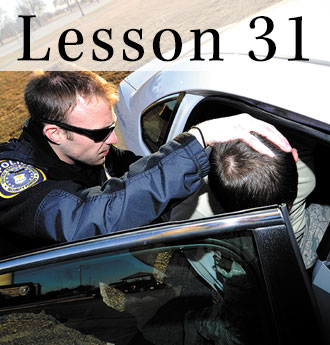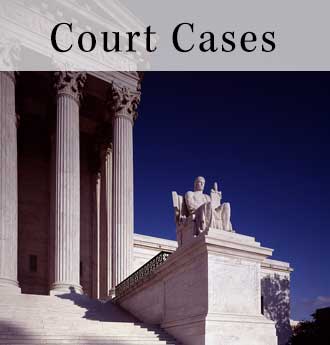Lesson 31: How Do the Fourth and Fifth Amendments Protect against Unreasonable Law Enforcement Procedures?
exclusionary rule The rule established by the U.S. Supreme Court that evidence unconstitutionally gathered by law enforcement officers may not be used against a defendant in a trial.
probable cause Reasonable grounds for presuming that a crime has been or is in the process of being committed. Provided for in the Fourth Amendment.
reasonableness Quality of what a rational and fair-minded person might say.
right against self-incrimination A guarantee found in the Fifth Amendment against being compelled in any criminal case to be a witness against oneself.
search In the context of American constitutional law, intrusion into someone's privacy.
seizure In the context of U.S. constitutional law, interference with a person's property or freedom of movement.
self–incrimination See right against self-incrimination
use immunity A guarantee government prosecutors give to a witness to not use the witness's self-incriminating compelled testimony as evidence against the witness in a subsequent criminal prosecution. A witness who receives use immunity may still be prosecuted, but based only on evidence not gathered from the protected testimony.
warrant An order by a judge authorizing a police officer to make an arrest or search or perform some other designated act.








